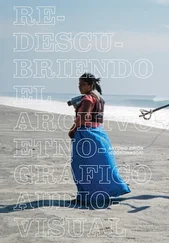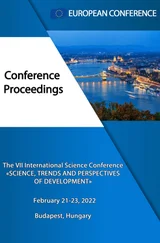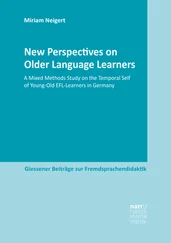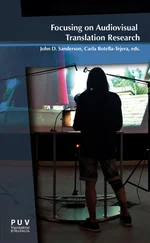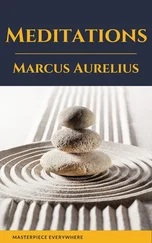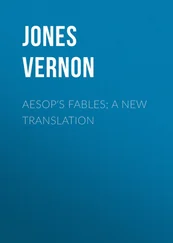ANTONIO J. MARTÍNEZ PLEGUEZUELOSholds a PhD in Translation and Interpreting from the University of Salamanca. His main research topics are translation and identity and translation and gender and LGBT+ studies. He has published different articles and book chapters on these topics, apart from the book Traducción e identidad sexual: reescrituras audiovisuales desde la Teoría Queer [Translation and Sexual Identity: Audiovisual Rewritings from Queer Theory] (Granada: Comares, 2018). He currently works as a lecturer at the Complutense University of Madrid. He is part of the official research group TRADIC . Traducción, Ideología y Cultura (U. of Salamanca).
IVÁN VILLANUEVA-JORDÁNis a research full professor at Universidad Peruana de Ciencias Aplicadas (Lima, Peru). He has conducted research on discourses and performances of drag queens in Lima. His doctoral research addressed the translation and multimodal construction of gay masculinities in contemporary telefiction. His current research interests are audiovisual translation, LGBTQ+ studies, and translation research pedagogy.
YERAY GARCÍA CELADESis an audiovisual translator. He holds a Degree in Translation and Interpreting from the Universidad de Alicante and has completed his Master’s Degree in Audiovisual Translation from the Universitat Autònoma de Barcelona in 2018 and his Master`s Degree in Editorial Translation from the Universidad de Murcia. His End-of-Degree Project and his End-of-Master’s Project focused on intertextuality in superhero films, a topic on which he is developing a doctoral thesis. He is currently working as a freelance translator and has translated to Spanish documentaries like Harry Potter 20th Anniversary: Return to Hogwarts , series like The Movies That Made Us or Doom Patrol and books like Thomas Quick: How to become a serial killer . He writes about audiovisual translation in his blog Luces, cámara, ¡traducción!
ARTURO VÁZQUEZ RODRÍGUEZholds a degree in English Studies from the Universitat de València (2013), institution in which he also completed a Master’s Degree in Creative and Humanistic translation in 2014. One year later, he enrolled in a PhD program and in 2018 obtained his PhD with a thesis titled Translation errors in video game localization: a comparative study between indie and non-indie video games directed by Dr. Juan José Martínez Sierra. Arturo has already worked for two of the top ten major technology and language service providers in the industry as a Localization Engineer. Nowadays, he continues to do so in Madrid.
When RAFAELLA ATHANASIADIfinished her bachelor with distinctions in English Language and Literature at the University of Cyprus in 2014, she opted for a translation-oriented career. She studied specialized translation with translation technology at University College London and after submitting her MSc dissertation she was offered to publish it ( The applications of MT and TM tools in subtitling: A new era? ). She also published an article based on her MSc research with the title Exploring the potential of machine translation and other language assistive tools in subtitling: A new era? In addition, she is the co-author of the research paper Streaming platforms and AVT training in a peripheral context: Asymmetries calling for pivot audiovisual translation (2023, forthcoming). She also submitted recently her PhD thesis with the title Mapping the area of subtitling technologies from a sociological standpoint and exploring didactic implications for subtitlers’ training . Her research interests revolve around subtitling technologies, translation sociology and AVT didactics.
MARÍA LÓPEZ RUBIOholds a BA in Translation and Interpreting from the Universitat Jaume I (Castelló, 2017) and a Master’s Degree in Medical Translation from Universitat Jaume I (2018). During her BA studies, she got a collaboration grant in the audiovisual translation research group TRAMA, led by professor Frederic Chaume Varela. She was awarded the final-year prize (2017) by Universitat Jaume I, the extraordinary prize ‘Capitania General de València’ (2017) for the best academic records, and the prize Ernest Breva (2013-2017), by Universitat Jaume I, for her academic career. She has participated as a speaker in conferences such as SELM (on modern languages), IALIC (International Association for Languages & Intercultural Communication), Media for All, and PluriTAV International Conference. She has worked in the service of audiovisual accessibility at the Valencian regional television channel À Punt, in charge of Audiodescription for the blind and visually impaired and Subtitling for the deaf and hard of hearing. She is currently enrolled in the Doctoral Programme in Language, Literature and Culture and its Applications at Universitat de València, where she is writing her PhD thesis, directed by professors Beatriz Cerezo Merchán and Juan José Martínez Sierra. Thanks to a predoctoral research grant, she is working as a full-time research and teaching fellow in the Department of English and German Philology at Universitat de València.
VALENTÍ MARTÍ SANSALONIis an audiovisual and literary translator. He gained his degree in Translation and Interlinguistical Translation in Universitat de València and his master’s degree in Literary and AV Translation in Universitat Pompeu Fabra. He has translated so far two books, from English into Catalan and from Spanish into English, and also five movies for dubbing, while he has subtitled about fifteen movies, as well as some episodes of TV soap operas, mainly from English and French into Catalan and Spanish. Since 2018, he does both live and pre-prepared subtitling for À Punt. Besides translating, he has also transcribed for CORPES XXI (Corpus del Español del Siglo XXI), from Real Academia Española, for PRESEEA (Project for the Sociolinguistic Study of Spanish from Spain and America) and for the commissions of both the Valencian and the Catalan regional Parliaments.
LYDIA HAYESis a final-stage PhD Candidate in the Centre for Translation Studies (CenTraS) at University College London (UCL). She previously studied at the Universidad de Salamanca and Trinity College Dublin. Lydia has been lecturing in Spanish-English translation to master’s students at the University of Bristol since 2020, and formerly taught Spanish oral language at UCL (2018-2021). Her research delves into accents and cultural identities in original and dubbed versions, in dual directionality between English and Spanish. She collaborates with dubbing companies in the UK and is a freelance translator.

A Brief Overview of Current Approaches to AVT Studies and Practices
JOSÉ FERNANDO CARRERO MARTÍN
& LAURA MEJÍAS - CLIMENT
Universitat de València, Universitat Jaume I
Audiovisual translation (AVT) is on the rise. Over the last twenty years, the world has seen a complete transformation of the film and media industries. The arrival of Digital Terrestrial Television (DTTV) in the 2000s and video-on-demand (VoD) in the 2010s, with platforms such as Netflix, HBO Max, Amazon Prime, Disney + and Apple TV+ reshaping the traditional audiovisual landscape, has had a direct impact on AVT as a profession, turning it into one of the most profitable industries in the language service business (Carrero Martín et al. 2019: 1), a trend that only seems to be growing as a result of the COVID-19 pandemic (Shevenock 2020: online). Furthermore, the European Union’s Directive (EU) 2018/1808 establishes that «Member States shall ensure that media service providers of on-demand audiovisual media services under their jurisdiction secure at least a 30% share of European works in their catalogues and ensure prominence of those works.» As a result, European production and distribution on the aforementioned VoD platforms is on the rise (Aguado-Guadalupe and Bernaola 2019: online), which is likely to have a positive effect on AVT as it will increase the need to translate content from a wide variety of languages.
Читать дальше
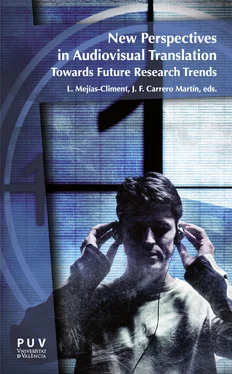

![Михаил Лермонтов - A Hero of Our Time [New Translation]](/books/27671/mihail-lermontov-a-hero-of-our-time-new-translati-thumb.webp)
